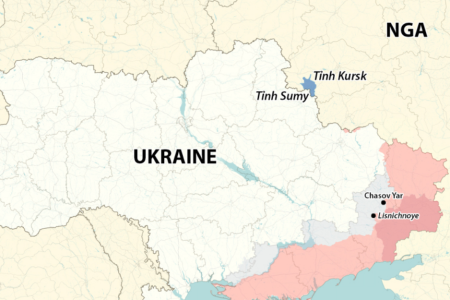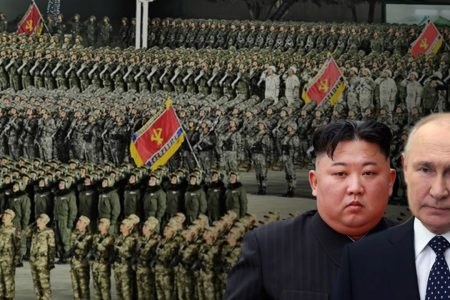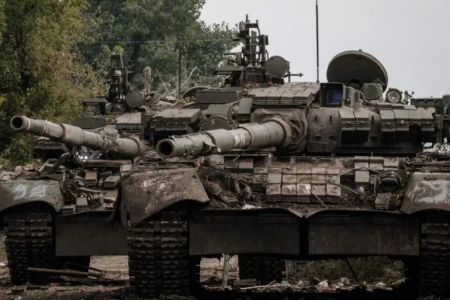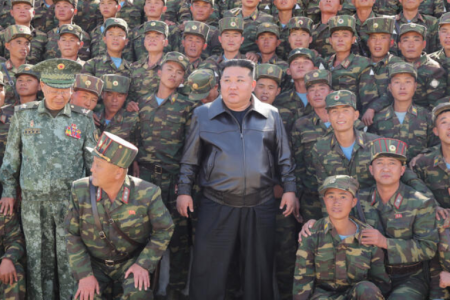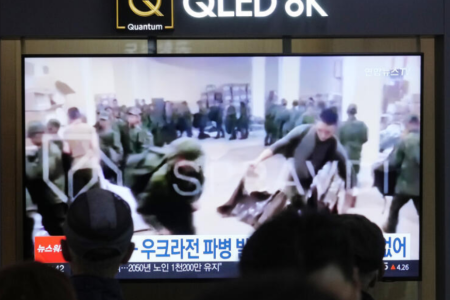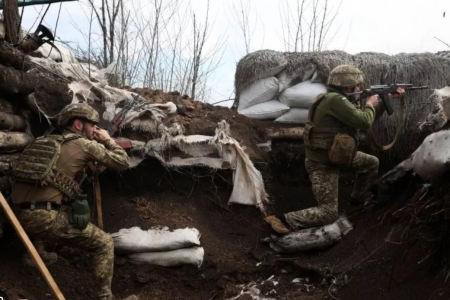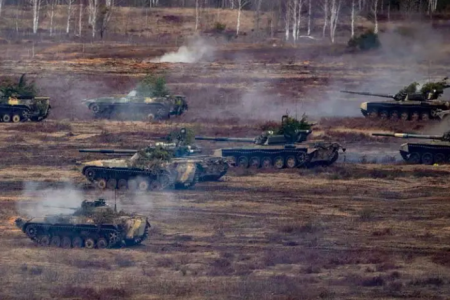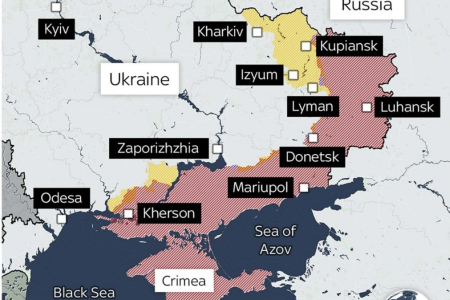Vietnam has just donated China with $100,000 as its neighbor suffers from heavy rains, floods and earthquakes that killed more than 100 people and millions became homeless.
The humanitarian action of the Vietnamese side takes place in the context that China is still escalating threats in the South China Sea (East Sea in Vietnamese), causing Vietnam to lose billions of dollars due to canceling oil and gas projects that have been implemented for many years ago.
In a statement on July 17, Vietnam’s Ministry of Foreign Affairs said: “Starting from the traditional friendship and the spirit of mutual support between the two countries, the Government and people of Vietnam support the Government and the people of China $100,000 for recovery of floods and earthquakes.”
Heavy rains that have hit many areas in China since June have killed at least 141 people, nearly 15 million people were evacuated in July alone, causing economic damage of billions of dollars, according to information from the Chinese government.
Earlier this week, authorities said the water levels in 33 rivers had reached record highs, 98 other rivers across the country were at an alarming rate while heavy rain continued to pour into areas along the Yangtze.
Currently, some of the dams on China’s largest freshwater lake, Ba Yang Lake, have burst and the amount of water in the lake has reached a record, according to data from the China National Meteorological Satellite Center.
Information about Vietnam’s assistance was announced by the Ministry of Foreign Affairs amid conflicts in the South China Sea still growing because of Beijing’s decisive actions to assert sovereignty.
A day ago, on July 16, Vietnamese Deputy Foreign Minister Le Hoai Trung had an online meeting with Chinese Deputy Foreign Minister Luo Zhaohui on “some issues about bilateral relations,” including COVID-19 and the South China Sea issue, the Ministry of Foreign Affairs of Vietnam said but did not disclose the details of this meeting.

The meeting of the two diplomats came after the US announced its stance on the South China Sea, which rejected China’s sovereignty claims and called it “illegal.”
A spokesman of the Vietnamese Ministry of Foreign Affairs later commented that “Vietnam welcomes the countries’ position on the East Sea issue in accordance with international law” and “hopes that the countries will try to contributes to the maintenance of peace, stability, cooperation in the East Sea and resolving disputes through dialogue and peaceful measures.”
On July 16, China’s Global Times warned of a US-Vietnam strategic relationship that Hanoi was pursuing, saying that Vietnam would be “empty-handed” if US intervention in the South China Sea created more tension or disrupt the balance of Sino-Vietnamese-American relations. The Global Times wrote: “Hanoi hopes to swing with Washington to strengthen its strategic strength in the South China Sea. This is a strategic choice that Vietnam addresses the needs of national strength and the regional situation.”
“But if US involvement in the South China Sea raises regional tensions or disrupts the balance between China, Vietnam and the US, then Vietnam’s development will be interrupted. Vietnam’s losses will be greater than what the country would receive,” the article wrote.
The Vietnamese government’s move to support China to deal with natural disasters has also faced some criticism. Businesswoman Le Hoai Anh wrote on her personal Facebook page that she was opposed to supporting China for Beijing’s aggression in the South China Sea against Vietnam, preventing fishermen from fishing, and preventing Vietnam from carrying out its oil and gas, in addition to construction of a series of hydropower dams along the upper part of the Mekong River, blocking the flow of rivers to Vietnam and causing crop failures, food shortages, and poverty in Vietnam.
In addition, this influential businesswoman said that natural disasters in China are caused by the Chinese themselves when “they are the main drivers of climate change.”

In another development, Reuters reported that Beijing-backed Asian Infrastructure Bank (AIIB) on July 17 said it would lend to the prosperous Vietnam Joint Stock Commercial Bank (VPBank) $ 100 million to make the bank more able to lend to private companies affected by the COVID-19 pandemic.
The bank’s statement said the loan, with capital contribution from International Finance Corporation (IFC), was part of AIIB’s $ 10 billion financing to help the public and private sectors fight pandemic.
Earlier this year, Vietnam also donated $500,000 to China for the serious damage from the Covid-19 pandemic raging in China, but then the social network complained when China stated 21 countries to thank without mentioning Vietnam.
A message posted on February 5 on the Chinese Foreign Ministry Spokesperson’s Twitter account wrote that the country “received” aid from UNICEF and the governments of 21 countries, but Vietnam was not named.
In addition to the UNICEF fund, the tweet lists 21 countries that appear to be in order of priority to their previous neighbors, including Korea, Japan, Thailand, Malaysia, Indonesia, Kazakhstan, Pakistan, followed by Germany, the UK, France, Italy, Hungary, Belarus, Turkey, Iran, United Arab Emirates, Algeria, Egypt, Australia, New Zealand, and Trinidad and Tobago.
The Chinese Foreign Ministry Spokesperson’s Twitter account did not mention Vietnam, although six days earlier, Vietnamese media quoted the government’s web portal saying “The Vietnamese Party and State have decided to provide aid with goods, especially medical supplies for China, worth $500,000 to share with the Chinese government and people as the coronavirus spread.”

Vietnamese media added that the Vietnam Red Cross “has been lobbying for another $100,000 worth of merchandise aid for China.”
Besides, according to domestic news, 7 Northern border provinces bordering China “have also taken appropriate actions to support Chinese people, especially provinces along the border of the two countries.”
On social networks on February 6, many Vietnamese including influential Facebookers such as activists Pham Doan Trang, Nguyen Tuong Thuy, Vu Quoc Ngu, Nguyen Van Dai, and businesswoman Le Hoai Anh, Do Hung newspaper, etc. … shared the tweet of the representative of the Ministry of Foreign Affairs of China with an unhappy attitude, saying that China despised Vietnam.
Some people raised the question whether China has not thanked Vietnam because the Vietnamese money has not arrived even though nearly a week has passed after Vietnam announced.
Ms. Pham Doan Trang pointed out three possibilities, one is that Hanoi “has not yet donated or provided any assistance” to Beijing; secondly, the Vietnamese government has sent a lot of aid to China, but Chinese leaders “did not count it as aid and support,” considered not worth it; and three, although the Vietnamese side sent aid, the typist for the Chinese Foreign Ministry’s Twitter account “simply … forgot the Vietnamese name.”
More people died, China used explosive to destroy dams to boost water release.
Rain continues to devastate parts of China, causing floods and landslides that affect the lives of about 40 million people.
Countless villages, cities and fields were submerged by water, and the economic damage is now about $12 billion.
Thousands of soldiers, police, firefighters and rescue workers and volunteers have worked hard over the past few days to evacuate people, providing them with shelter and essential supplies.
According to CGTN, since June, more than 140 people have been killed or missing because of floods. China’s Ministry of Irrigation reported water at 433 rivers at dangerous levels since June, including 33 record high rivers.
Millions of people are displaced in 27 provincial regions in China. The provinces of Jiangxi, Anhui and Hubei are among the worst affected.
Meanwhile, according to CCTV, the Chuhe River was flooded, authorities in Anhui Province were forced to use explosives to destroy a dam to discharge floods on the morning of July 19. The water of the Chuhe River was later thought to be reduced by 70cm.
Not only Chuhe, water in dozens of rivers and lakes in southern and central China, including the Yangtze, is at an alarming rate due to unrelenting heavy rains for more than a month.
The demolition of dykes and embankments to release floods is one of the measures that China was forced to resort to in the historic flood in 1998, a flood that left more than 2,000 people dead and about 3 million houses destroyed.
Since the beginning of this month, the water level in the Changjiang River, the longest river in China, has twice peaked. Local officials warned that this week’s flood could be more serious than the first on July 2.
On the same day, China also raised flood warnings in the Hoai River in the east from level two to level 3 (level 4 is the most serious level) when the water level in 10 reservoirs exceeded the warning level by nearly 7 meters. Hoai River is the fourth longest river in China, flowing through provinces like Hanan, Anhui, and Jiangsu before emptying into the Changjiang River.
Thoibao.de (Translated)



